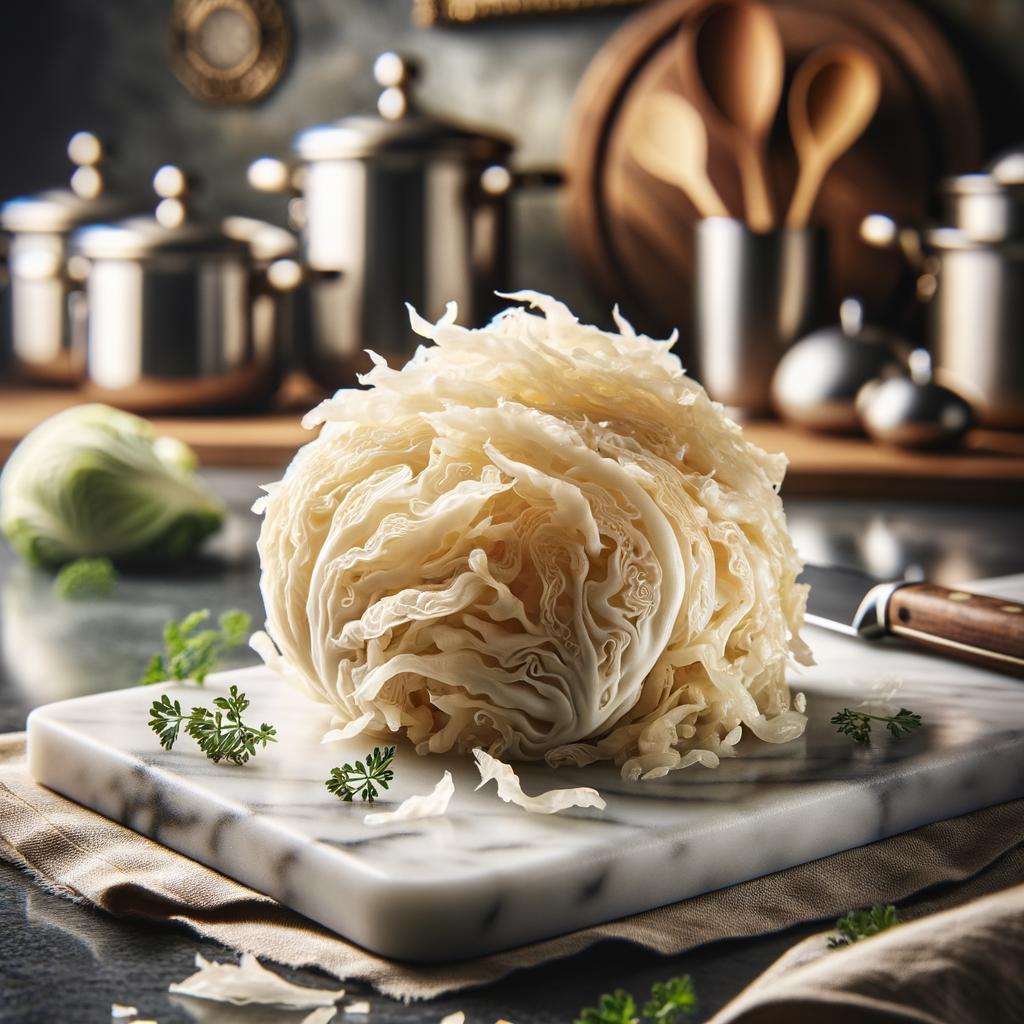Sauerkraut

Description
Sauerkraut, a culinary gem, is a type of fermented cabbage with a rich history. Its name, derived from German, translates to "sour cabbage," a simple yet apt description of its characteristic taste. In appearance, sauerkraut is a vibrant, pale yellow, its thin shreds of cabbage glistening with the tangy brine in which it ferments. The texture is both crunchy and yielding, a delightful contrast that makes every bite interesting. Its flavor profile is complex; it's tangy, a little salty, and has a subtle crunch that is both satisfying and addictive. The unique lactic acid bacteria present in sauerkraut sets it apart from other fermented foods, giving it a distinct sour flavor and a host of health benefits.
Primary Uses
Sauerkraut is a versatile ingredient that shines in a variety of dishes across different cuisines. It's a staple in German cuisine, often served alongside sausages or pork. In Eastern European dishes, it's commonly used in soups and stews, adding a tangy depth of flavor. Sauerkraut also finds its place in sandwiches, particularly the iconic Reuben. Beyond culinary uses, sauerkraut has been used for medicinal purposes, as a source of vitamin C during long sea voyages to prevent scurvy, and also holds a place of cultural significance in many New Year's traditions as a symbol of prosperity.
History
The history of sauerkraut stretches back over 2,000 years, originating in China, where it was likely fermented in rice wine. It was later embraced by the Germans, who gave it its name and preferred the method of fermentation in salt, which is how it's commonly made today. Soldiers often carried barrels of sauerkraut during long campaigns, not only as sustenance but also as a preventative measure against digestive ailments. Over the centuries, this humble fermented cabbage has travelled and evolved, with each culture adding its unique touch. An interesting folklore is that it was the building of the Great Wall of China that led to the creation of sauerkraut, as it was an easy way to feed the workers and keep them healthy.
Nutritional Information
Sauerkraut is a nutritional powerhouse. It's low in calories, yet high in fiber, and packed with vitamins C and K. It also contains a good amount of iron and manganese. The fermentation process enhances its nutritional profile, introducing probiotics which are beneficial for gut health. Compared to raw cabbage, sauerkraut has a higher bioavailability of nutrients, meaning our bodies can absorb and utilize these nutrients more effectively. However, it's worth noting that it can be high in sodium, so moderation is key for those watching their salt intake. In a world of fermented foods, sauerkraut stands as a testament to the beauty of simplicity and the power of tradition.

